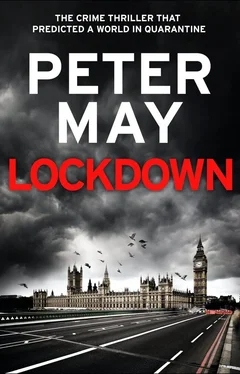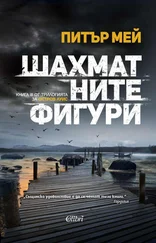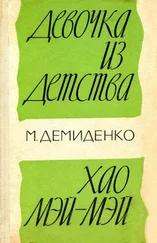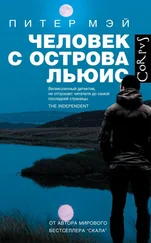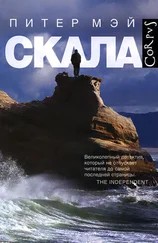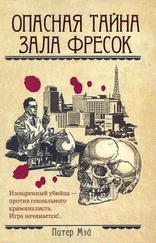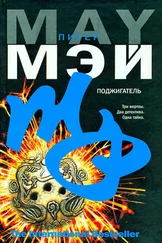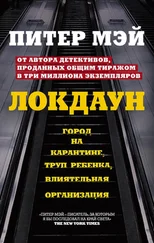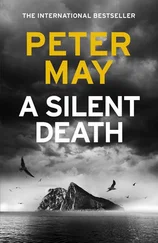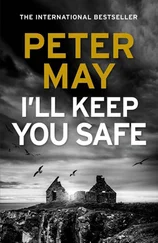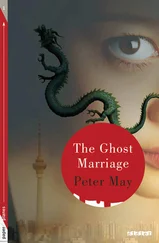‘Get out of the car with your hands up,’ the lead soldier shouted. ‘Do it! Now!’
MacNeil was not going to argue. He opened the door and got slowly out into the road, keeping his hands well above his head. It was disconcerting that he could not see the soldiers’ faces behind their masks and goggles. It made them seem less human. It was hard to imagine entering into any kind of negotiation. ‘I’m a cop,’ he said. ‘I’ve got clearance to be out.’
‘Not on our computer, you don’t.’
MacNeil cursed under his breath. Either Laing had forgotten to enter it up, or there was some glitch. They moved in close around him, the barrels of their rifles inches now from his face. ‘I’ve got ID. I can show you.’ He started reaching slowly for his inside pocket, and one of the soldiers swung his rifle around and clubbed him on the side of the head. A bright light flashed in his eyes and he fell to his knees. ‘Jesus,’ he said, his voice just a whisper. ‘I’m a fucking cop.’
Hands pulled him roughly to his feet and slammed him up against the side of his car. Someone pushed his face down on to the roof and forced his hands up behind his neck, then kicked his legs apart. ‘Move and you’re a dead man.’ The voice hissed very close to his ear. His head was pounding, and he felt hands frisking him and going through his pockets. His warrant card was slapped down on the roof of the car next to his face. He saw the light from the streetlamps reflecting on the badge with its crown and royal insignia.
‘Where did you steal this?’
‘I didn’t steal it. Take a look at the photograph, for God’s sake!’
The warrant card disappeared from his field of vision and there was a moment of hiatus. Then, ‘Doesn’t look anything like him,’ he heard one of the soldiers say. And he cursed the day he’d decided to get his hair cropped short.
‘Put him in the truck.’
They started dragging him across the roadway.
‘Jesus, just phone my boss, will you? It’s DCI Laing at Kennington Road Police Station. He was supposed to enter my authorisation into the computer.’
Several pairs of hands dragged him roughly over the lip of the drop-down gate at the back of the truck and left him sprawling on the studded metal floor. Someone slapped his face and banged him up against the canvas side flap. His warrant card skittered away across the floor.
‘Don’t fucking move!’
He was vaguely aware of a young soldier at the back of the truck with a laptop computer and a short-wave radio. The light from the screen reflected on the boy’s face as his fingers spidered over the keyboard. But MacNeil had no time to reflect on his situation before a deafening explosion rocked the truck on its wheels. The shockwave pushed the canvas cover inwards as if from a physical blow, before sucking it out again. Breaking glass showered the streets around them like rainfall and a huge flash of searing white light turned the night sky briefly into day.
Voices outside of the truck were raised in panic. He heard someone shout that it was the bank in Chinatown. ‘They’ve blown up the fucking bank!’
From where he sat, MacNeil could see the troops, who moments earlier had manhandled him into the truck, deploying north along the avenue towards Chinatown. No one was worrying much about him any more. The young coms officer at the back of the truck was shouting into his short-wave, calling for reinforcements. MacNeil made an instant decision, something he would almost certainly not have done given time to reflect. He reached forward and snatched the soldier’s rifle, which was lying on the bench beside him. The soldier turned from his radio and grabbed at it. But too late. He found himself on the wrong end of his own gun, with MacNeil grim, determined and frightened, at the other.
‘I’m legit, kid. I’m a cop. Check me out on the computer.’ He bent down cautiously to retrieve his warrant card.
The kid sat frozen with fear and humiliation and shook his head.
MacNeil pulled the magazine from the rifle and tossed it out into the street, and then the rifle after it. ‘I’m going,’ he said. ‘Don’t come after me.’ Even as he turned, the young soldier made his move. He didn’t relish trying to explain to the others how he’d lost his gun and his prisoner. But he was no match in size or strength for the big Scotsman. MacNeil grabbed his jacket and ripped off his mask. ‘Don’t even think about it, sonny. Or I’ll breathe on you.’
The threat was more effective than any physical intimidation. The young man recoiled from the policeman’s breath, and MacNeil pushed him back into the truck before jumping down into the road and running to his car. Nobody had thought to remove the keys from the ignition, and it fired first time. MacNeil reversed at speed into Piccadilly Circus, and with tyres spinning, turned into Regent Street, and then Air Street, accelerating across Brewer Street into Lower John Street and up into the deserted Golden Square. It would be a risk, he knew, leaving his car here, but he would be able to move around more freely on foot.
None of the street lights along the far side of the square were working, forming a deep pool of darkness into which he drove and parked his vehicle. He got out and stood by the car, hearing the tick, tick of cooling metal, and listening intently for any hint of activity nearby. The explosion at the Chinatown bank had started a blaze which lit up the night sky beyond the nearest buildings. He could hear sirens and the crackle of gunfire and raised voices echoing around empty streets, and decided that it was safe to move.
He stuck to the network of narrow streets and lanes which fanned out like a spider’s web across Soho to the north of Shaftesbury Avenue. Bridle Lane, Great Pulteney Street, Peter Street. The devastation here was extraordinary. Stolen vehicles discarded and set alight. Almost every building — shops and offices — violated by looters. The pedlars of sex and pornography who sold their wares in the streets and alleys of Soho had been cleaned out. Slinky’s, For the Liberated and Enslaved — Corsets — Rubber — Leather. The lap dance joints and tattooists and cinemas had been stripped bare. Broken glass and discarded merchandise lay in drifts along streets where doors hung off twisted hinges and windows were black holes. Pubs where he had drunk, and restaurants where he had eaten, were barely recognisable. Soho Spice, The Blue Posts.
Dean Street was shrouded in darkness. The explosion at the bank down on the avenue seemed to have affected power supplies. There were no street lights. But the reflection of an eerie, flickering light licked faintly up the walls of its deserted clubs and restaurants from the fire in Chinatown. Broken glass on the pavements sparkled like frost, and a cold wind carried on it the smell of smoke and burning rubber. The cream-painted walls of a piano bar on the corner with Meard Street were streaked black from the blaze which had gutted it.
MacNeil flitted quickly through the dark to the east side of Dean Street and headed north. Fifty yards brought him to the steel-shuttered facade of the Black Ice Club. There had been clear attempts to force an entry, but metal grilles had so far kept the looters at bay. MacNeil was not sure what he had expected to find. If the club was still in operation, it was hardly likely to be advertising itself. He stood perfectly still, listening. And he felt, more than heard, the faintest thump, thump, thump. The monotonous, endlessly repetitive dance music that so characterised the tastes of today’s kids. Not, he supposed, that it had been all that different in his day. It was all a matter of what you grew up with, and grew out of.
He could not have said for certain that the music was coming from inside the Black Ice Club. But he would have risked money on it, if he’d had to. There had to be another way in. At the end of the block, opposite the Wen Tai Sun Chinese News Agency, a narrow lane led beneath overhead offices, into a cobbled courtyard filled to overflowing with wheely bins which hadn’t been emptied in months. Rats scurried in panic around his feet as MacNeil moved warily through the dark of the alley into the courtyard beyond. There were black-painted railings, and steel-barred windows, and fire escapes that zigzagged up the sides of brick-built office blocks. A pencil-thin line of light showed all around a thick steel door. As he approached it, MacNeil sensed the music getting louder. And now he heard it, rather than felt it.
Читать дальше
